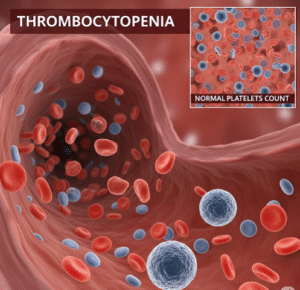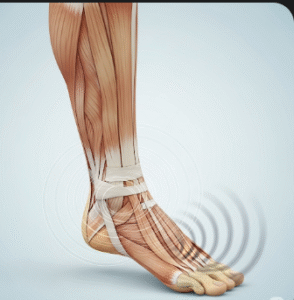Overview
Fever is defined as a temporary elevation of body temperature above the normal range, typically caused by the body’s response to infection, inflammation, or other medical conditions. It is a common symptom that signals the immune system is active. In Korea, hospitals and clinics provide diagnostic testing, treatment, and monitoring for fever, especially when associated with serious illnesses or persistent symptoms.
Key Facts
▶ Normal Body Temperature: Around 36.1–37.2°C (97–99°F), but it can vary slightly between individuals.
▶ Fever Threshold: Generally considered ≥38°C (100.4°F).
▶ Prevalence: Fever is one of the most common symptoms prompting medical consultation.
▶ Causes: Infections (viral, bacterial, parasitic), autoimmune disorders, heat exposure, medications, or malignancy.
▶ Associated Symptoms: Chills, sweating, headache, fatigue, dehydration, muscle aches, and loss of appetite.
▶ Treatment Options in Korea: Medical evaluation, antipyretics, antibiotics if infection is bacterial, and hospital care for severe or persistent cases.
▶ Urgency: High fever (>40°C / 104°F), prolonged fever, or fever in infants and the elderly requires prompt medical attention.
What is Fever?
Fever is the body’s natural response to infection or illness, where the hypothalamus raises the body’s temperature set point. This helps enhance immune response, inhibit pathogen growth, and signal illness.
▶ Mild Fever: 38–39°C, often manageable with home care.
▶ Moderate Fever: 39–40°C, may require medical evaluation.
▶ High Fever: >40°C, may indicate severe infection or medical emergency.
▶ Chronic or Recurrent Fever: Can last weeks or reappear periodically, often needing diagnostic testing.
▶ Associated Symptoms: Sweating, chills, rapid heartbeat, dehydration, and malaise.
Note: Fever is a symptom, not a disease itself, and identifying the underlying cause is critical for appropriate treatment.
What Symptoms Are Related to Fever?
▶ Chills and Shivering: Body attempts to raise temperature.
▶ Sweating: Helps reduce temperature after fever spike.
▶ Headache: Often accompanies fever due to inflammation.
▶ Muscle and Joint Pain: Common with viral or bacterial infections.
▶ Fatigue or Weakness: Energy is diverted to immune response.
▶ Loss of Appetite: Reduced desire to eat during illness.
▶ Dehydration: From fluid loss due to sweating and increased metabolic activity.
▶ Confusion or Irritability: Especially in infants, elderly, or those with very high fever.
What Causes / Possible Causes
Fever can arise from various infectious, inflammatory, or systemic conditions:
▶ Infections: Viral (influenza, COVID-19), bacterial (pneumonia, urinary tract infection), or parasitic (malaria).
▶ Inflammatory Conditions: Rheumatoid arthritis, lupus, or other autoimmune disorders.
▶ Heat-Related Illness: Heat exhaustion or heatstroke.
▶ Medications: Antibiotics, vaccines, or drug reactions.
▶ Cancer: Certain malignancies can cause persistent fever.
▶ Endocrine Disorders: Hyperthyroidism may increase body temperature.
▶ Recent Surgery or Trauma: Inflammatory response may trigger fever.
▶ Unknown Causes (Fever of Unknown Origin): Requires detailed evaluation when lasting >3 weeks.
Note: Proper diagnosis is essential to treat the underlying condition, not just reduce temperature.
When Should I See a Doctor?
▶ High or Persistent Fever: >40°C (104°F) or lasting more than 3 days.
▶ Infants or Young Children: Fever in babies <3 months needs urgent evaluation.
▶ Associated Severe Symptoms: Shortness of breath, chest pain, severe headache, stiff neck, seizures, or rash.
▶ Underlying Health Conditions: Immunocompromised individuals, chronic illness, or elderly patients.
▶ Travel-Related Concerns: Fever after travel may indicate infectious disease exposure.
▶ Recurrent or Unexplained Fever: May require lab tests or imaging to detect hidden infections or malignancies.
▶ Dehydration or Inability to Maintain Fluids: Especially important in children and elderly.
Tip: Korean hospitals offer comprehensive diagnostic services, including blood tests, imaging, and specialist consultations to identify fever causes accurately.
Care and Treatment
Management of fever depends on cause, severity, and patient health:
▶ Hydration: Drinking fluids to replace lost water and electrolytes.
▶ Rest: Conserving energy helps the immune system fight infection.
▶ Antipyretics: Medications like acetaminophen or ibuprofen to reduce discomfort and high temperature.
▶ Treating Underlying Infection: Antibiotics for bacterial infections, antivirals when indicated.
▶ Cool Environment: Light clothing, cool compresses, and proper ventilation.
▶ Monitoring: Regularly check temperature and associated symptoms.
▶ Hospital Care: Required for high, persistent, or complicated fevers.
▶ Lifestyle Measures: Balanced diet, adequate sleep, and avoiding exposure to infectious agents.
Treatment Options in Korea
Medical Evaluation:
▶ Physical Examination: Assessing vital signs, symptoms, and general health.
▶ Laboratory Tests: Blood counts, cultures, urine tests, and inflammatory markers.
▶ Imaging Studies: X-ray, ultrasound, or CT scan for suspected internal infection or organ involvement.
▶ Specialist Consultation: Infectious disease, pediatrics, internal medicine, or emergency specialists provide targeted care.
Advanced Therapies:
▶ Hospitalization for Severe Cases: IV fluids, oxygen therapy, or intensive monitoring.
▶ Targeted Medications: Antibiotics, antivirals, or anti-inflammatory drugs based on diagnosis.
▶ Multidisciplinary Approach: Combines diagnostics, pharmacological therapy, and supportive care for optimal recovery.
Rehabilitation & Support:
▶ Patient Education: Recognizing warning signs and maintaining hydration.
▶ Follow-Up Care: Ensures resolution of infection or underlying condition.
▶ Specialist Clinics: Korean hospitals provide integrated fever management programs, combining diagnostics, treatment, and follow-up support.
Outcome: With early recognition and comprehensive treatment in Korea, fever can be effectively managed, addressing the underlying cause, relieving discomfort, and preventing complications.













